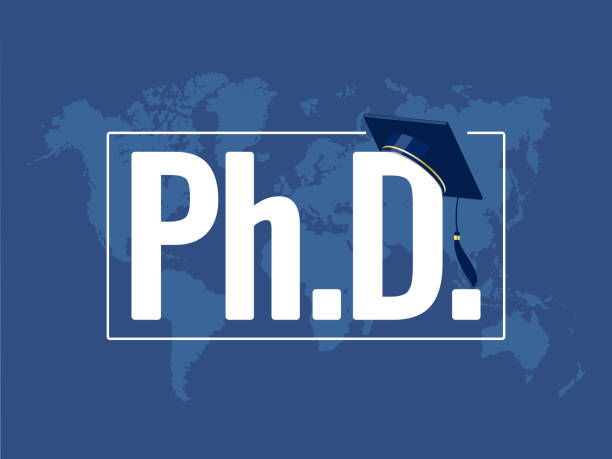Fully funded neuroscience phd programs
The field of neuroscience is at the forefront of scientific discovery, unlocking the mysteries of the human brain and nervous system. As technologies like artificial intelligence and brain-machine interfaces gain momentum, the demand for skilled neuroscientists has surged. However, pursuing a PhD in neuroscience—a gateway to groundbreaking research and careers—can be financially daunting for many students.
Fortunately, fully funded neuroscience PhD programs offer a unique opportunity to achieve academic and research excellence without the overwhelming burden of student debt. This guide will walk you through everything you need to know about these programs, from their significance to how to apply and the career opportunities that await.
What Are Fully Funded PhD Programs?

Fully funded PhD programs, including those in neuroscience, typically cover the entire cost of tuition and provide a stipend for living expenses. This financial support may come from university funding, external fellowships, or a combination of the two.
For aspiring neuroscientists, fully funded programs are crucial as they allow students to focus on their research and academic goals instead of financial struggles. This funding often includes access to additional resources such as conference travel grants, lab equipment, and opportunities for interdisciplinary collaboration.
Why Fully Funded Programs Matter
Pursuing a PhD is a long-term commitment, often requiring 5–7 years of rigorous study and research. Fully funded programs not only alleviate financial stress but also enable students to fully immerse themselves in their research. This, in turn, contributes to high-impact discoveries and innovations in neuroscience.
The Current Landscape of Neuroscience Research
Neuroscience research is a rapidly evolving field, combining insights from biology, psychology, computer science, and clinical medicine. From studying the molecular mechanisms of brain diseases to developing brain-inspired artificial intelligence, neuroscience plays a pivotal role in addressing critical challenges across various domains.
Key advancements in neuroscience include:
- Brain Imaging Innovations: Techniques like fMRI and PET scans are revolutionizing how we study brain activity.
- Neurological Disease Research: Efforts to understand disorders like Alzheimer’s, Parkinson’s, and autism are helping design targeted treatments.
- Brain-Machine Interfaces: Emerging technologies are bridging the gap between the brain and external devices, with applications ranging from prosthetics to communication tools.
Fully funded PhD programs in neuroscience provide students with access to cutting-edge tools and interdisciplinary collaborations in these and other groundbreaking areas.
Top Universities Offering Fully Funded Neuroscience PhD Programs
If you’re considering a career in neuroscience, these prestigious universities offer some of the best fully funded PhD programs worldwide.
1. Harvard University (USA)
Harvard’s Program in Neuroscience provides full funding for accepted students and unparalleled opportunities to work with leading researchers. Learn more.
2. University of Cambridge (UK)
Cambridge offers fully funded PhDs through its doctoral training program, emphasizing interdisciplinary neuroscience research. Learn more.
3. Stanford University (USA)
Stanford Neurosciences PhD Program guarantees funding for tuition and living expenses, fostering innovation in advanced neuroscience fields. Learn more.
4. University of Zurich (Switzerland)
Zurich is renowned for its neuroscience PhD program and international collaborations, with full financial support for its students. Learn more.
5. Max Planck Institute for Brain Research (Germany)
The program at Max Planck offers comprehensive funding and access to cutting-edge facilities. Learn more.
6. Massachusetts Institute of Technology (MIT, USA)
MIT’s Department of Brain and Cognitive Sciences integrates engineering, biology, and psychology, with guaranteed funding for PhD students. Learn more.
7. University of Toronto (Canada)
The Collaborative Program in Neuroscience fully supports its PhD candidates, focusing on diverse research fields. Learn more.
8. University of Melbourne (Australia)
Melbourne’s PhD program in Neuroscience offers funding and research opportunities that bridge academia and industry. Learn more.
9. Karolinska Institute (Sweden)
Known for its role in awarding the Nobel Prize in Physiology or Medicine, Karolinska offers fully funded neuroscience PhD programs. Learn more.
10. University College London (UCL, UK)
UCL’s neuroscience PhD program is fully funded, with a strong emphasis on translational research and global collaboration. Learn more.
ALSO READ:
Steps to Apply for Fully Funded Neuroscience PhD Programs

Applying for a fully funded neuroscience PhD program requires careful preparation. Here’s a step-by-step guide to help you succeed.
- Research Programs
Start by identifying programs aligned with your research interests. Look for faculty members whose work inspires you and review admission requirements.
- Prepare Your Application Materials
Typical materials include a CV, statement of purpose, academic transcripts, and recommendation letters. Tailor your materials to highlight your research experience and goals.
- Take Relevant Tests
Depending on your chosen program, you might need to submit GRE scores or language proficiency tests like TOEFL or IELTS.
- Contact Potential Advisors
Reach out to faculty members whose work aligns with your interests. A well-written email demonstrating your enthusiasm and understanding of their research can go a long way.
- Submit a Strong Statement of Purpose
Detail your academic background, research interests, and career goals. Clearly articulate why the specific program and faculty are ideal for your aspirations.
- Prepare for Interviews
If shortlisted, you may be invited for an interview. Be ready to discuss your research interests, past projects, and plans.
Career Opportunities and Research Areas for Neuroscience PhDs
Graduating with a PhD in neuroscience opens doors to a wide array of career paths.
Academic and Research Roles
Many neuroscience PhDs secure postdoctoral positions and academic careers, contributing to groundbreaking research in areas like cognitive neuroscience, biophysics, or computational neuroscience.
Industry Positions
The pharmaceutical and biotechnology industries seek neuroscience PhDs for roles in drug development, clinical trials, and neurotechnology innovation.
Healthcare and Policy
Graduates may also work in healthcare management, science communication, or shaping policies that impact public health and neurological research. Emerging areas like neuroethics and global mental health research are especially promising.
2 Real Stories from Current PhD Students and Alumni
We spoke with Emily and Alex, and here is the summary of what they said:
Emily, Current PhD Student at MIT
“MIT’s fully funded program has been a game-changer for me. I’ve been able to collaborate with researchers across departments and even present my work at international conferences—all without financial stress!”
Alex, a Neuroscience PhD Graduate from Cambridge
“Cambridge’s interdisciplinary approach expanded my perspective on neuroscience. The funding I received also allowed me to focus on my research without worrying about external pressures.”
Conclusion: Invest in Your Future with a Fully Funded Neuroscience PhD

Fully funded neuroscience PhD programs offer not just financial support but a platform to advance the boundaries of human knowledge. Whether you’re dreaming of becoming a cognitive neuroscientist or designing brain-computer interfaces, these programs provide the resources, mentors, and experiences you need to thrive.
Take a step toward your dream career by thoroughly researching programs, crafting a compelling application, and leveraging every opportunity to grow in the field of neuroscience. Success begins with the right education—and the right support to make it possible.







